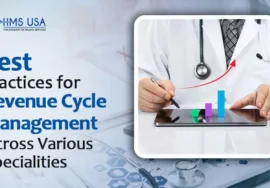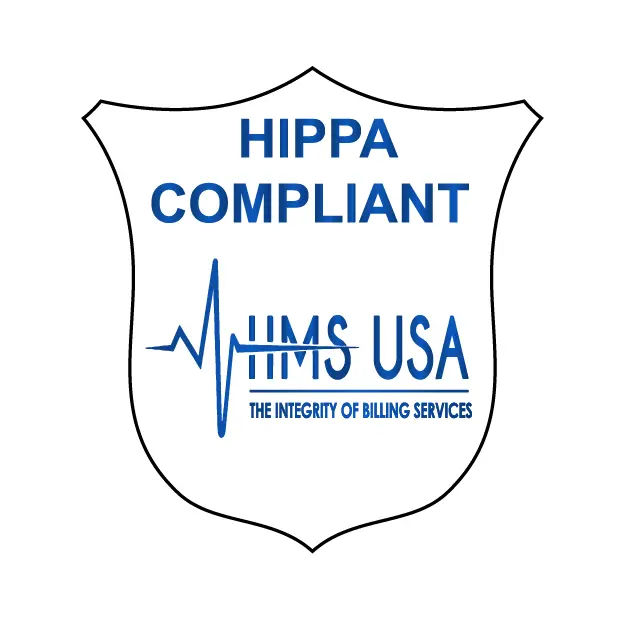
How to Improve Revenue Cycle Management – HMS USA
Improve your Revenue Cycle Management (RCM) with HMS USA to enhance financial outcomes in healthcare practice. Efficient RCM practices are crucial for maximizing revenue and reducing costs.
The revenue cycle encompasses the entire revenue generation process, from client engagement to cash realization. By focusing on optimizing this cycle, healthcare practice can boost profitability and achieve sustainable growth.
Outsourcing RCM Services
Outsourcing Revenue Cycle Management (RCM) services become an increasingly popular strategy for healthcare practices to optimize their financial operations. By entrusting RCM to specialized third-party partners, organizations like medical billing companies help to access expert knowledge, advanced technology, and enhanced efficiency.
From Start to End: Transform Your Revenue Cycle Management Now!
Benefits of Healthcare Revenue Cycle Management
Healthcare RCM offers numerous benefits that contribute to the financial health and operational efficiency of healthcare organizations.
Effective RCM ensures accurate and timely billing, reducing the likelihood of missed or delayed payments and leading to increased revenue capture and improved cash flow.
Simplify administrative tasks by automating RCM processes and software integration which allows staff to concentrate more on the patient’s care and strategic initiatives.
Overall, Healthcare RCM plays an important role in ensuring financial stability, operational efficiency, and patient satisfaction, positioning providers for continued growth and success in the highly competitive healthcare landscape.
Check out our Services
Best Practices to Improve RCM
Improv Revenue Cycle Management (RCM) requires a comprehensive approach that addresses various aspects of the revenue cycle process.
Focus on the patient experience
Patient satisfaction is a necessary part of increasing revenue and improving overall financial outcomes. Simplify check-in and patient registration processes that help to reduce wait times and enhance convenience.
Utilize technology to offer pre-registration options and streamline administrative tasks. We Offer personalized financial counseling services to assist patients in understanding their financial responsibilities and exploring available payment options.
Improve the payment collections process
In Revenue cycle management, effective payment collections are an important part of maintaining financial improvements. It ensures the long-term sustainability of healthcare practice and helps to improve payment delays.
For recurring services, establish automated billing arrangements with clients. This ensures consistent and predictable payments, reducing the risk of delays. Develop a clear collections policy that outlines steps for handling overdue accounts.
Automate Patient Eligibility Verification
Eligibility verification in advance is a powerful way to streamline the healthcare revenue cycle and enhance patient satisfaction. It is necessary to check patient eligibility with that specific insurance company.
Regularly evaluate the effectiveness of the automated eligibility verification system and gather feedback from patients. Utilize these details to implement adjustments and improve the procedure.
Manage Claim Denials
An effective denial management process can help healthcare providers to recover revenue that might otherwise be lost due to rejected or denied claims. Controlling claim denials is essential for optimizing RCM and maximizing financial outcomes.
Track & Follow Up on Claims
Reduce denied and delayed claims by significantly tracking and followup on claims. Monitoring and following up on claims is a critical aspect of improving revenue cycle management to ensure timely reimbursement and minimize delays in cash flow.
Provide ongoing training to staff on payer policies, billing guidelines, and coding updates. The knowledgeable staff can reduce claim errors and improve follow-up efforts.
Timely Submission of Claims
Many healthcare providers need to file claims in a timely manner, and the filing deadline has passed. Insurance companies allow claims up to one year from the service date, but many private insurers only allow 90 days.
If the deadline is missed, the insurance will not be paid, and the clinic must suspend clinical services.
Boost Your Revenue by improving your Revenue Cycle Management
Achieve Success in Healthcare Revenue Cycle Management
In HMS USA, Healthcare revenue cycle management improvement (RCM) requires an appropriate strategy for increasing revenue.
The most important points are:
- Performance Metrics for RCM: In RCM, monitoring performance indicators like Days In accounts receivable (AR), Denial Rate and Collection Rate are utilized to assess effectiveness and pinpoint areas to improve.
- Audits of Compliance: RCM Conduct compliance audits to ensure compliance with healthcare regulations and to identify threats.
- Education and Training: constantly educating RCM employees on changes in the industry as well as best practices and emerging technologies to ensure the highest level of competence and keep up-to-date in the field.
- RCM Services Outsourcing: outsourcing specific RCM Services to specialized companies to benefit from their experience and resources.
Conclusion:
Improve your revenue cycle and enjoy financial success by utilizing HMS USA, the trusted rcm. Our experts are focused on providing exceptional care to patients while healthcare practices optimize the financial results of their clients.
HMS USA knows how to improve revenue cycle management through the use of advanced technology to maximize the revenue cycle while also reducing claims denials and delays.





